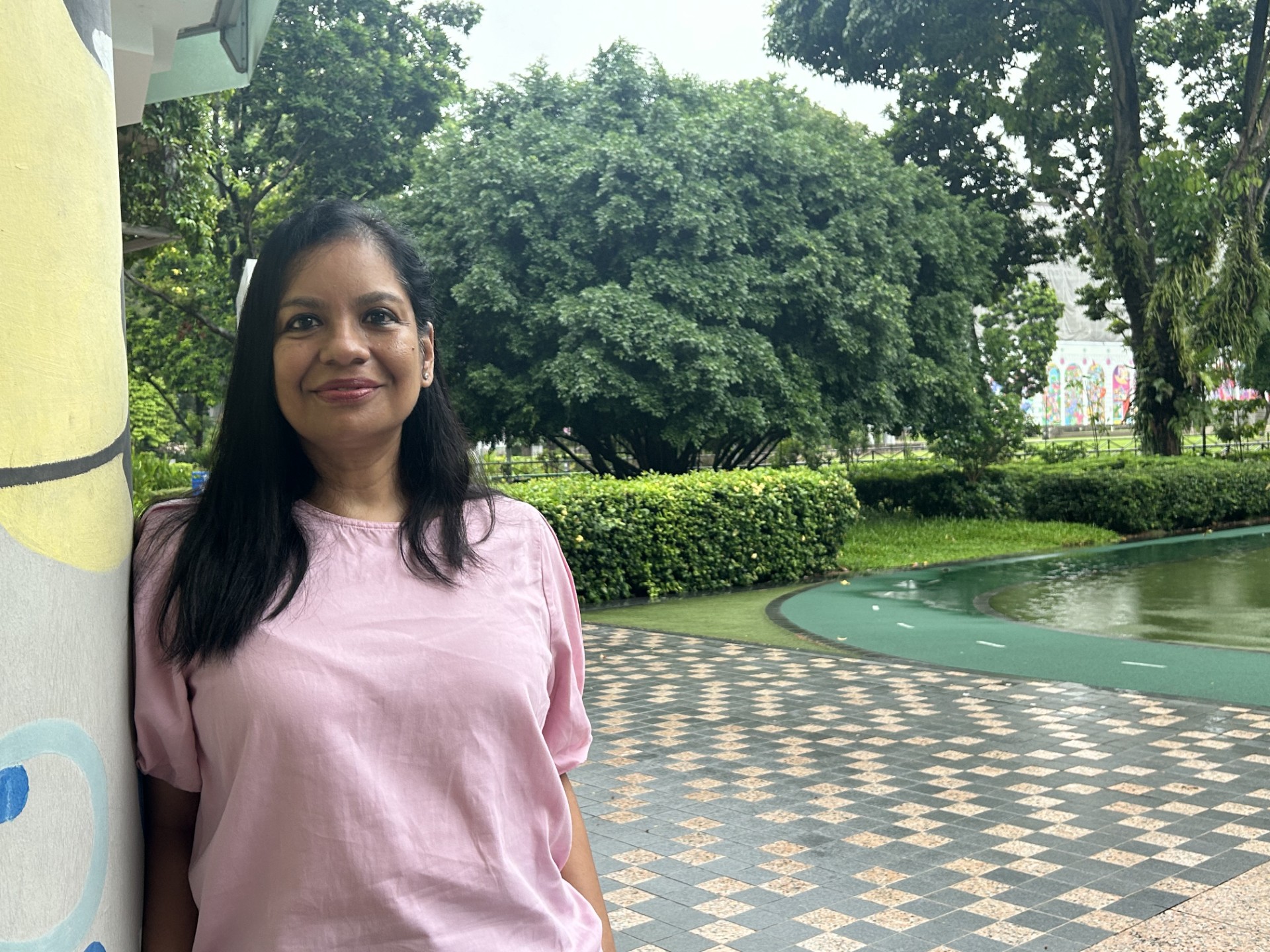
How do smart city technologies affect social relationships? How can policy be designed to protect people from disease? How can Large Language Models boost cybersecurity? How can quantum computing solve problems supercomputers struggle with?
These are the questions that drove the high-value research by four research staff who won the 2024 SMU Research Staff Excellence Awards. In its third edition since it started in 2022, the award recipients were announced recently by Professor Archan Misra, Vice Provost (Research), to recognise the significance of the contributions by SMU researchers working with SMU faculty to conduct research that creates a positive impact.
The evaluation committee, comprising Provost Prof Timothy Clark, Prof Misra and Prof Gary Chan, Vice-Provost (Faculty Matters), was impressed by the excellence demonstrated by the four award recipients. Here is a quick dive into their work:
Ms Emma Grimley, Research Assistant at College of Integrative Studies
Emma is a research assistant on the ‘Technocratic Regionalism in SEA’ project, an MOE Tier 2 project led by Professor Orlando Woods and Professor Lily Kong. It is a three-year multi-sited qualitative research project looking at the use of smart city and digitalisation initiatives across Southeast Asia, particularly on the role of the ASEAN Smart Cities Network in facilitating connections between cities, specifically Singapore, Ho Chi Minh City, Bangkok, Chiang Mai, and Jakarta and Banyuwangi (in Indonesia).
It explores the (mis)alignments, tensions, and opportunities for exploitation when different scales of influence - regional, national, and global - arise in an urban context.
“Broadly speaking, how does the individual, everyday experience of urban life interplay with questions of identity, citizenship, and belonging? How is the larger project of the Smart Nation reshaping personal timescapes of residents in Smart Estates? – these are the areas I’m attempting to explore in this study,” she said.
She is grateful to have had the opportunity to work on another project alongside her main work on Smart Cities, the ongoing ‘Educational Infrastructures and Migrant (Un)Belonging: Indian International Students in Singapore and Toronto’. This project was a natural extension of her undergraduate thesis on international students and their feelings of (dis)connection to Singapore.
Keen to pursue a PhD in an urban studies-related discipline, Emma hopes to continue to grow as a researcher who can translate her work into real-world applications.
Mr Monit Sharma, Research Engineer, School of Computing and Information Studies

Monit’s work for a Quantum Computing project, funded by the National Research Foundation (NRF), is focused on algorithm designs. He recently published, as a first author, two papers in the best Quantum Computing conferences in 2024.
“Quantum computing introduces a novel approach to addressing certain types of problems that are challenging for classical computers, particularly those involving optimisation and combinatorial complexity. It holds promise for tackling issues that grow exponentially in complexity, such as some NP-hard problems that even supercomputers find difficult to solve efficiently.”
NP problems are like a complex jigsaw puzzle, he explained. “If I hand you a completed puzzle, you can see it's correct because all the pieces fit together. But if I hand you the pieces for you to solve it, that takes a lot of time! NP problems are like that—easy to check, hard to solve.”
A real-world example of an NP problem is how to optimise delivery routes in logistics to minimise travel time or fuel consumption. He is involved in two research projects with IBM and Professor of Computer Science Lau Hoong Chuin, that explores how quantum computing can solve complex optimisation challenges in supply chain management.
Monit also writes about quantum computing on GitHub, as he is motivated to share ideas to “help shape how people view the future of technology.”
Mr Yang Zhou, Senior Research Engineer, School of Computing and Information Systems

As a researcher of large language models of code and software ecosystems in tooling and analytics, Yang Zhou wants to use Artificial Intelligence (AI) to make life easier for software developers. “Think of these AI models as really smart assistants that help developers write, fix, and understand code. I'm trying to make these AI tools better, safer, and easier for developers to use every day,” he said.
He has published 20 papers on software engineering and cybersecurity, and also received first place in the ACM Student Research Competition at the 46th International Conference on Software Engineering for a paper entitled ‘Classifying Source Code: How Far Can Compressor-based Classifiers Go?’ The research found, significantly, that simple traditional methods can outperform heavyweight and energy-demanding AI models, helping developers boost productivity.
Yang Zhou has also been acknowledged with the Distinguished Reviewer award at the 15th Asia-Pacific Symposium on Internetware. He is supervised by OUB Chair Professor of Computer Science David Lo, and showcases his team’s research at academic conferences.
“SMU is very reputable in the software engineering research community and people like to work with us!” he said. “Building effective research networks requires a willingness to share ideas. I actively engage in discussions to connect with peers and grow future collaboration opportunities.”
Dr Panchali Guha, Senior Research Fellow, School of Social Sciences

As part of the project ‘Shaping Public Adaptive Capacity for Environmental Infectious Diseases (SPACE)’ supported by the NRF, Panchali Guha studies how adaptive strategies can be designed to manage endemic infectious diseases, such as dengue. The project involves many university teams, and SMU is taking the lead to deliver a public policy work package. Panchali works closely with Professor Ishani Mukherjee on how communities engage with disease mitigation policies.
What drives her is her interest in the behavioural motivations of policy targets and how they affect responses to government policies. In the SPACE project, for example, she is intrigued by how people’s underlying motivations for mosquito control affect their behavioural responses to the ‘dialling up’ or ‘dialling down’ of different types of mosquito control policies.
She also has a deep interest in education policy, Her public policy PhD dissertation was on school-based management, and she taught an elective course on global education policy at SMU this semester. Next year, she is teaching an elective on Policy Design and Analysis in 2025 and hopes to have more exposure to writing research grant applications in the future.